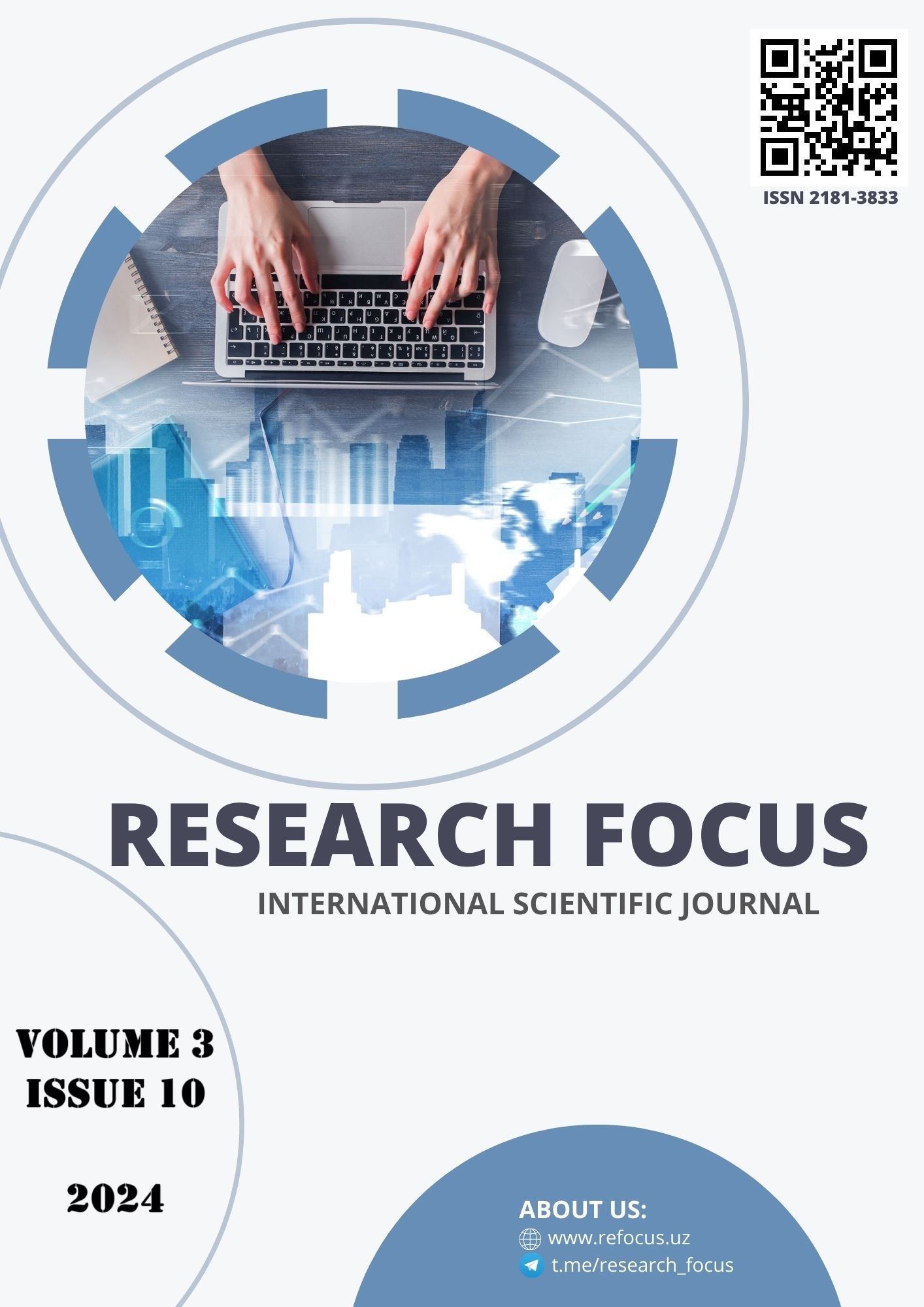CONCLUSIONS AND RECOMMENDATIONS ON WAYS TO IMPROVE CRITICAL THINKING SKILLS OF HIGH SCHOOL STUDENTS IN CREATIVITY SCHOOLS THROUGH ENGLISH LESSONS
Main Article Content
Abstract
This article presents conclusions and recommendations on improving the critical thinking skills of high school students in creativity schools through English lessons. The study emphasizes the importance of critical thinking in the educational process, particularly in fostering intellectual and creative capacities. Various methods and approaches are suggested, including project-based learning, debates, simulations, and critical reading techniques, which can effectively cultivate critical thinking abilities. The article outlines the pedagogical and psychological foundations for enhancing critical thinking and provides a framework for integrating these skills into English lessons. Recommendations focus on developing tailored teaching strategies, teacher training, and incorporating critical thinking elements into assessment systems to encourage students to think analytically and independently.
Article Details

This work is licensed under a Creative Commons Attribution 4.0 International License.
References
Abu nasr farobiy ―Fozil odamlar shaxri‖ tarjimonlar Abdusodiq Irisov, Mahkam Mahmudov, Urfon Otajon. Mas’ul muharrirlar M.Xayrullaev, M.Jakbarov. – Toshkent: Yangi asr avlodi, 2016. – 320 b.
A.Hayitov, S.Azizova Abu Nasr Farobiyning “Fozil odamlar shahri” asari -bugungi kun yoshlarining ma’naviyat maktabi sifatida
D.R.Garrison, H.Kanuka; Blended learning: Uncovering its transformative potential in higher education, The Internet and Higher Education, Volume 7, Issue 2, 2nd Quarter 2004, Pages 95-105
Hove, G. Developing critical thinking skills in the high school English classroom. Unpublished Master dissertation, Menominee, WI: The Graduate School University of Wisconsin-Stout. 2011
M.Karakoç, The Significance of Critical Thinking Ability in terms of Education, İstanbul Aydın University Institute of Social Sciences, Turkey
Md. Harun Ar- Rashid., The role of education in the tourism sector, Library & information management academic blog., 11, 2023
Nada J. Alsaleh Teaching Critical Thinking Skills: Literature Review, Turkish Online Journal of Educational Technology - TOJET, v19 n1 p21-39 Jan 2020
Nishonov A, Xaydarov B., Nuriddinov B. va boshqalar. Baholash usullari. O‘quv qo‘llanma. T., 2003. 190 bet.
O.Dadabolayeva. Boshlang‘ich sinf o‘quvchilarida tanqidiy fikrlash qobiliyatlarini shakllantirish mexanizmlari
Özkaya, Ö.Miraç; S.Nuriye. Öğretim Etkinliklerinin Öğrencilerin Sınıf-İçi Eleştirel Düşünme Engellerinin Kaldırılmasına Etkisi
Pescatore, C. Current events as empowering literacy: For English and social studies teachers. Journal of Adolescent & Adult Literacy, 51(4), 326-339.
Podlasiy I.P. Pedagogika. Yangi kurs. Kitob 1. M., «Vlados», 2000. 79 b.
Qobdabay Qabdirazaqұli: Abay pyedagogikasi — tәrbiye іlіmіnің tұnigʻi
R.H.Ennis, Critical Thinking. Upper Saddle River, NJ: Prentice-Hall 1996
R.H.Ennis. Applying soundness standards to qualified reasoning. Informal Logic, 24, 1, 23-39. 2004
Ruggiero, V. R. The art of thinking: A guide to critical and creative thought (10th ed.). New York, NY: Longman. 2012
T.B.Nazarov Tanqidiy-tahliliy fikrlash qobiliyatini rivojlantirish bo‘yicha xorijiy tajribalar tadqiq
Thein, A., Oldakowski, T., & Sloan D. Using blogs to teach strategies for inquiry into the construction of lived and text worlds. Journal of Media Literacy Education, 2(1), 23-36.
Willingham, D. T. Critical Thinking: Why Is It So Hard to Teach? American Educator, 2007. 31, 8-19.
Аганов И.Г. К вопроси о формированийе критического образованийе. 2001.№ 2
Ғуломов.С.С. Далилларни эслаб қолиш ва ғояларни исботлаш. Тошкент: Ўқитувчи. -2005.
Кларин.М.В. Развитие критического и творческого мышления. // Школные технологии.- 2004.
M.M. Якуббаев, Tалабаларда миллатлараро толерантликни ривожлантиришнинг этнопедагогик асосларини такомиллаштириш. Наманган – 2021

